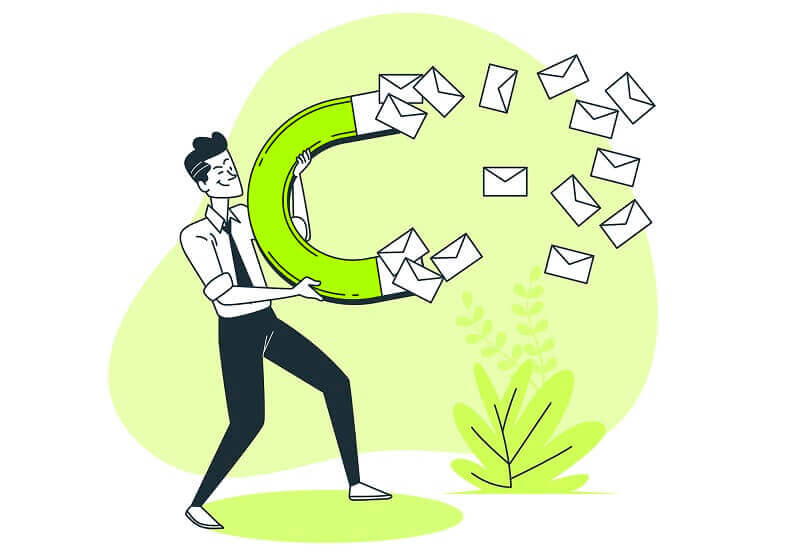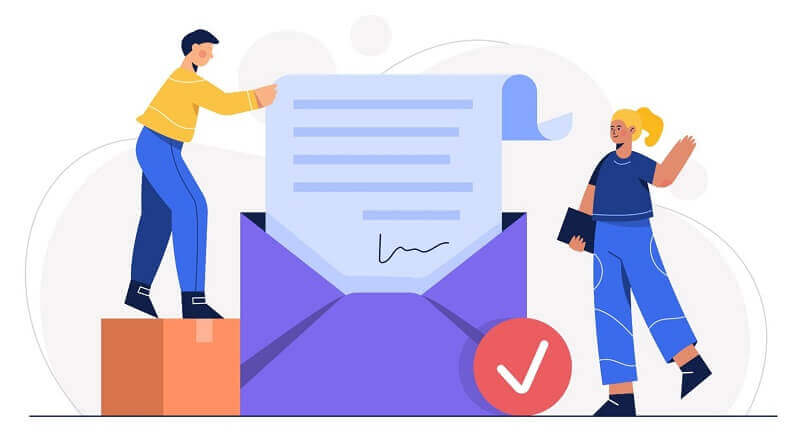In the digital age, email marketing has become an indispensable tool for businesses to connect with their target audience. However, the process of acquiring email addresses, also known as email harvesting, raises important considerations regarding legality and ethics. This applies to any method of collection, including email extractor. It is essential for businesses to understand and adhere to the principles and regulations governing email harvesting to maintain trust, protect privacy, and ensure compliance. This article serves as a guide to best practices in email harvesting, covering key areas such as privacy regulations, data protection, transparency, and responsible email communication.
Compliance with Privacy Regulations
You can take a different approach to collect contacts, such as using Atompark’s email harvester, which is a fast and reliable way to add to your mailing list. When it comes to email harvesting, businesses must prioritize compliance with privacy regulations to protect individuals’ personal information and maintain the trust of their audience. So, here are some best practices in email harvesting.
1. Understanding Applicable Laws and Regulations
To engage in ethical email harvesting, businesses must familiarize themselves with the privacy laws and regulations governing their jurisdiction. So, here’s how to use an email extractor legally.
- General Data Protection Regulation (GDPR) in the European Union.
- CAN-SPAM Act in the United States.
Understanding these regulations will provide guidance on how to handle personal data and obtain proper consent.
2. Obtaining Proper Consent
Seek explicit and informed consent from individuals before adding them to your email list. This is also relevant for professionals who use an email harvester program. Clearly communicate the purpose of collecting their email addresses and inform them about their rights. And how their data will be used. Implement mechanisms to record and store proof of consent for compliance purposes.

Respect for Data Privacy
Respecting data privacy is crucial in email harvesting practices to ensure that individuals’ personal information is handled responsibly and ethically. So, here are some best practices in email harvesting.
You can also learn these bulk email best practices so that your mailings are not only ethical but also successful.
1. Safeguarding Personal Information
- Implement strong security measures to protect the personal information collected during email harvesting. This includes using secure servers, encrypting data, and regularly updating security protocols.
- Restrict access to personal data within your organization and only provide access to authorized individuals who require it for legitimate purposes.
- Train your employees on data privacy best practices, including the importance of safeguarding personal information and the potential consequences of data breaches.
- Regularly review and update security protocols to address evolving cyber threats.
2. Data Retention and Purpose Limitation
- Define clear retention periods for the personal information you collect through email harvesting. Retain the data only for as long as necessary to fulfill the purpose for which it was collected.
- Regularly review and purge outdated or unnecessary data to minimize data storage and mitigate potential risks.
- Document your data retention policies and ensure they align with applicable privacy regulations.
Transparency and Opt-Out Options
Transparency and providing opt-out options are essential components of ethical email harvesting practices. It is especially important to take care of this if you use a website email harvester to collect contacts. It is critical to be transparent about data collection and usage, as well as give individuals the ability to control their email preferences. So, here are some best practices in email harvesting.
1. Transparent Data Practices
Transparency is vital in maintaining trust with individuals whose email addresses have been harvested. Particularly when using email harvester software, be cautious about the data collection process. Businesses should provide clear and accessible information about how email addresses are collected, stored, and used. You can achieve this through a comprehensive privacy policy or a dedicated section on the company’s website.
Clearly communicate your data collection and usage practices in your privacy policy or terms of service. Be transparent about the types of data you collect. And how it is stored and secured, and the purposes for which it will be used. Provide easy access to your privacy policy. And also ensure it is written in clear and understandable language. Avoid using confusing or vague terms that may mislead or confuse individuals.
So, if you share or transfer personal data to third parties, disclose this information and explain the purpose of such sharing. Obtain consent if necessary and adhere to applicable data protection laws.
2. Providing Opt-Out Mechanisms
Respecting individuals’ preferences is crucial in ethical email collecting with email harvest software. Every communication sent should include a clear and easily accessible opt-out mechanism, such as an unsubscribe link. Ensure that the opt-out process is simple, straightforward, and user-friendly. Honoring opt-out requests promptly demonstrates a commitment to respecting recipients’ choices and fosters a positive brand image. Regularly update your email lists based on opt-out requests; ensuring that individuals who have chosen to unsubscribe are not included in future email campaigns.
Moreover, avoid requiring individuals to provide excessive information or go through multiple steps to unsubscribe. Promptly process opt-out requests and ensure that you promptly remove individuals from your email list. Please respect their decision to unsubscribe and refrain from sending them any further emails unless necessary, such as transactional or legally required communications.

Responsible Email Communication
Responsible email communication is crucial for maintaining ethical practices in email harvesting. Besides this, it involves honoring individuals’ preferences, providing valuable and relevant content, and ensuring a positive user experience. So, here are some best practices in email harvesting.
1. Honoring Email Preferences
- Respect the preferences expressed by recipients regarding the frequency and types of emails they wish to receive.
- Implement preference centers that allow individuals to customize their email subscriptions.
- Regularly review and update email preferences based on user feedback and changing preferences.
2. Providing Valuable and Relevant Content
- Focus on delivering content that is valuable, informative, and relevant to your target audience.
- Personalize email campaigns based on recipient data to enhance engagement and provide a tailored experience.
- Avoid spammy or misleading practices that may damage your reputation and violate ethical standards when using the email harvester program.
Conclusion: Best Practices In Email Harvesting
By adhering to legal and ethical best practices in email collecting with email harvester or using other methods, businesses can establish trust, protect privacy, and build long-term relationships with their audience. Moreover, compliance with privacy regulations, respect for data privacy, transparency, and responsible email communication are key pillars of a successful email marketing strategy. Embracing these best practices not only ensures legal compliance but also enhances the overall reputation and effectiveness of email marketing campaigns.
Interesting Related Article: How To Recognize A Hard Bounce Email?
The post Legality and Ethics of Email Harvesting: Best Practices to Follow appeared first on free html design.


0 Commentaires